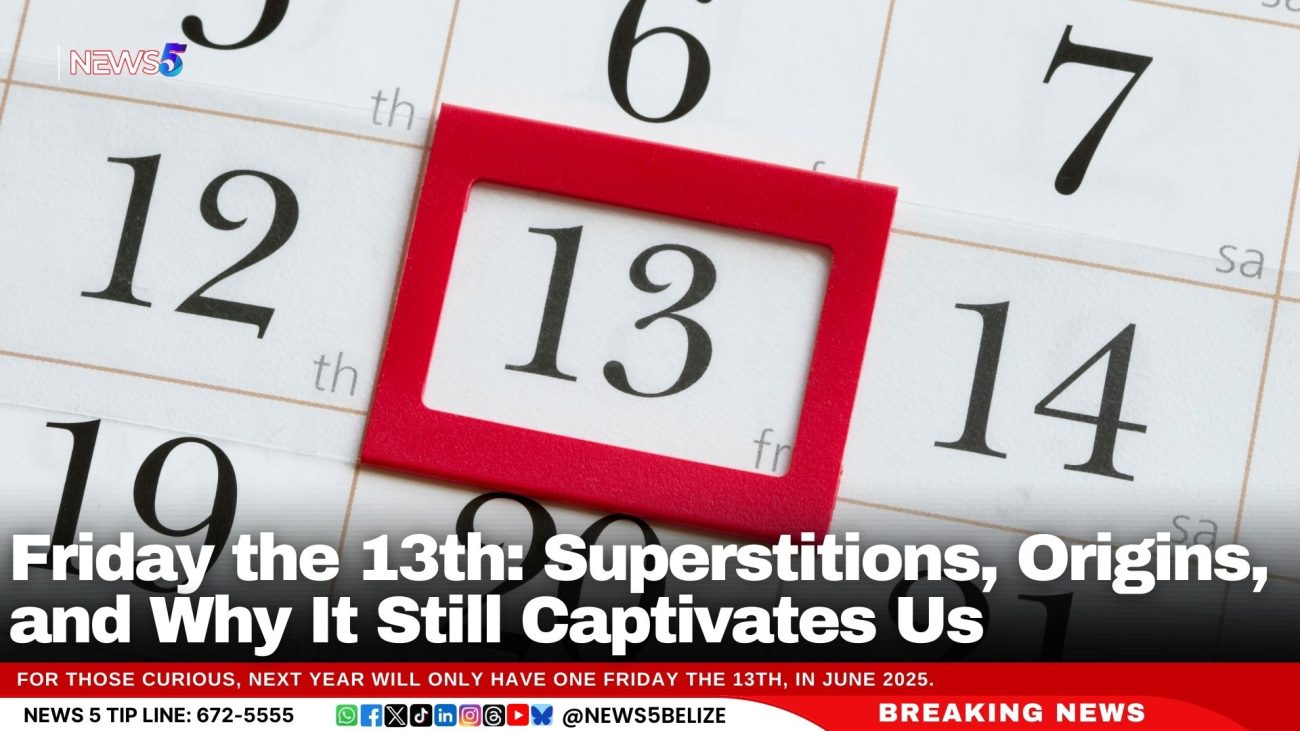Friday the 13th: Superstitions, Origins, and Why It Still Captivates Us
Today marks Friday the 13th, a date shrouded in superstition, mystery, and a dash of pop culture flair. This is the second Friday the 13th of 2024, following the one in September.
For those curious, next year will only have one Friday the 13th, in June 2025.
The day has long been associated with bad luck and superstition, a belief reinforced by pop culture, especially the Friday the 13th slasher film series. But its origins run deeper, with links to both religion and human psychology.
The Origins of Friday the 13th
While the exact origins of Friday the 13th remain unclear, many trace the fear of the number 13 back to Christian tradition. Some believe it stems from Judas Iscariot, the apostle who betrayed Jesus and was said to be the 13th guest at the Last Supper. Friday itself is also linked to misfortune as it marks the day of Jesus’ crucifixion, creating a “double whammy” of bad luck, according to Dr. Phil Stevens, a retired anthropology professor and author of Rethinking the Anthropology of Magic and Witchcraft: Inherently Human.
Stevens explains that the human tendency toward “magical thinking” plays a role in linking two unrelated events — in this case, Friday and the number 13. This same thinking fuels beliefs about lucky charms and celebrity-owned items being more valuable.
Superstitions to Watch Out For
Friday the 13th is often met with heightened caution as people try to avoid common “bad luck triggers.” Here are a few superstitions tied to the day:
Breaking a Mirror: Said to bring seven years of bad luck, so handle glassware carefully.
Walking Under a Ladder: The triangle formed by a leaning ladder is seen as a sacred symbol of life. Walking through it is believed to “break” the symbol and invite misfortune.
Spilling Salt: Spilling salt has long been linked to bad luck, dating back to ancient times. To reverse the misfortune, it’s customary to toss a pinch of salt over your left shoulder.
Crossing Paths with a Black Cat: Black cats have historically been linked to witches and bad omens. If one crosses your path on Friday the 13th, some believe misfortune follows.
Stepping on Cracks: The childhood rhyme “step on a crack, break your mother’s back” reflects a belief that cracks on sidewalks or roads could bring bad luck or invite negative energy.
How to Reverse Your Luck
Not everything about Friday the 13th has to be ominous. If you’re feeling anxious, there are a few traditions believed to bring good fortune:
Carry a Lucky Charm: Four-leaf clovers, horseshoes, and rabbit’s feet are classic symbols of luck and protection.
Knock on Wood: This time-honored superstition is believed to ward off bad luck or “jinxes” after saying something hopeful or positive.
Why It Still Matters
Despite its mysterious origins, Friday the 13th continues to grip public imagination. From flash sales at tattoo parlors to horror movie marathons, the day blends fear, fun, and folklore. Friday the 13th remains a date where superstition and modern life collide.







Facebook Comments